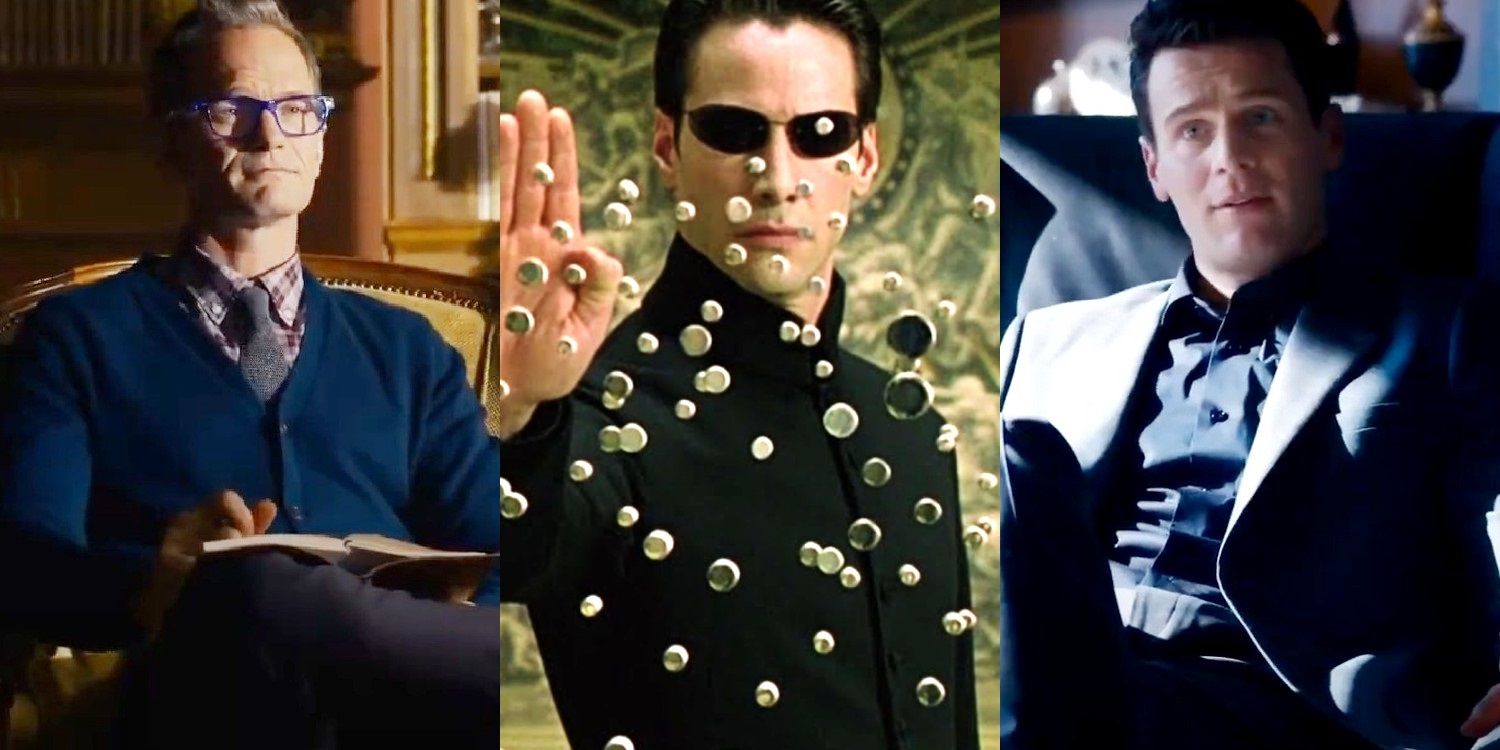
Who could be the villain in The Matrix Resurrections? Releasing in the uncertain climes of 1999, The Matrix was a game-changing cinematic masterclass that harnessed the intrigue of the new millennium for a revolutionary dose of sci-fi mayhem. Set in a future where humans have been enslaved by machines and connected to an elaborate artificial simulation, Keanu Reeves' Neo is awakened by Laurence Fishburne's Morpheus and Carrie-Anne Moss' Trinity. Hailed as The One, Neo navigates a perilous digital world to give mankind a second chance, ending the war between flesh and steel.
2003's The Matrix Revolutions brings Neo's story to a definitive, if not popular, conclusion, but despite two iffy sequels, the Matrix franchise has remained culturally relevant, and a fourth movie being made was only a matter of time. After years of speculation over a possible remake, Lana Wachowski was finally confirmed for The Matrix 4 in 2019, with Reeves and Moss both reprising their roles. Filming has since wrapped and a trailer released, but still virtually nothing is known about The Matrix Resurrections' plot.
As The Matrix heads into its next chapter, one of the most important questions is the new villain. Who will Neo and Trinity be facing upon their return? With details thin on the ground, rumors and theories are rife, especially now that Hugo Weaving has denied his involvement. Here are the most likely candidates to play The Matrix Resurrections' antagonist for a new age.
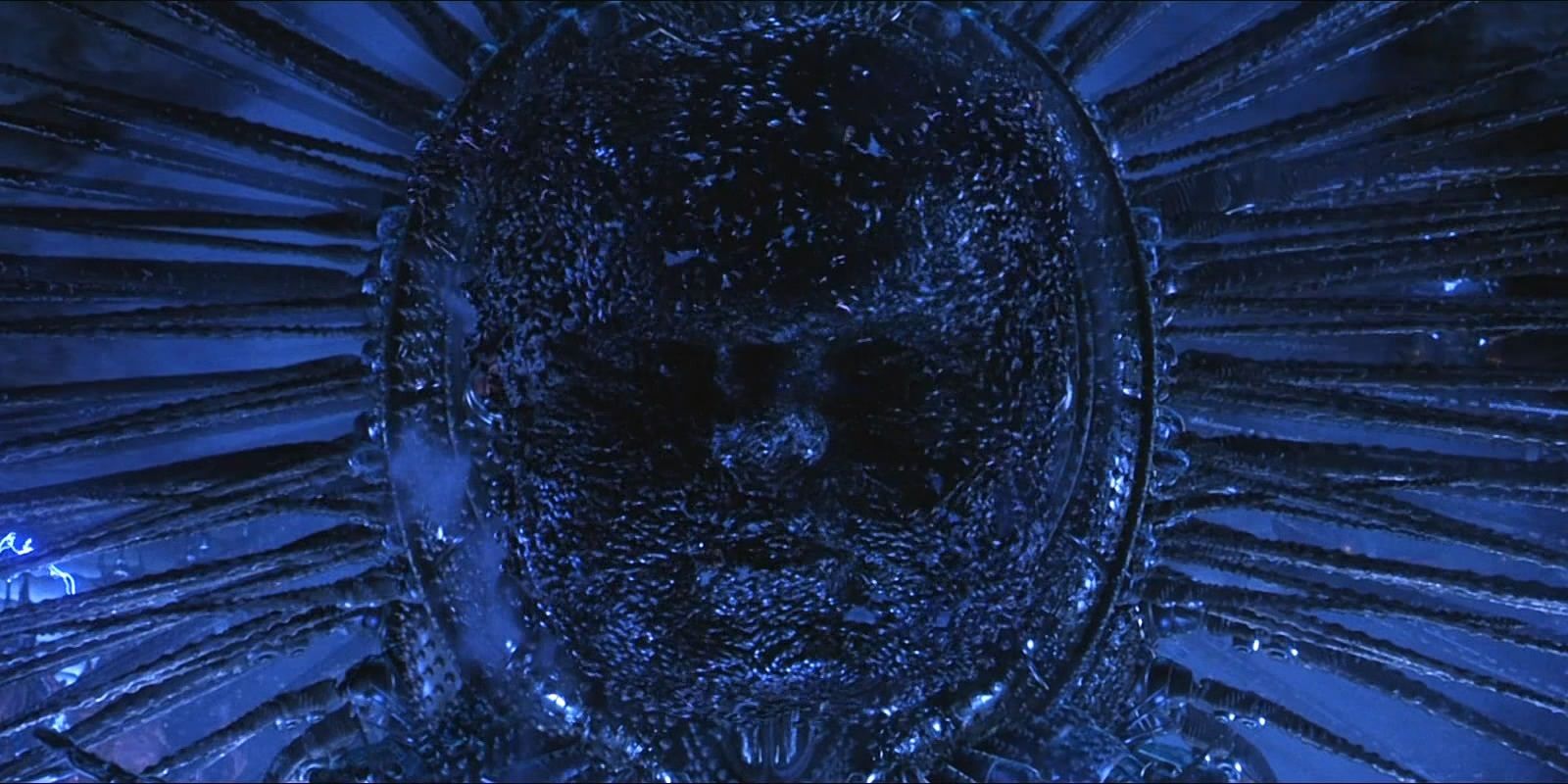
The Matrix loves a bit of philosophy, and Occam's Razor is a popular principle among deep-thinkers, broadly stating that the simplest explanation is usually the best in any given situation. Applying that concept to The Matrix Resurrections, the new film's villains could once again be the Machines. The metallic, self-aware mechanoids controlled by Deus Ex Machina served as the main threat throughout the original Matrix trilogy, but were effectively blackmailed into a peace treaty by Neo. In The Matrix Revolutions' final scene, The Architect promised the agreement would be adhered to, but with no small amount of reluctance.
Assuming The Matrix Resurrections takes place some years after the original trilogy, the Machines might've restarted their campaign against mankind, finding a loophole in Neo's deal using their infinite powers of calculation. Those pesky Machines resuming their old habits would explain why Neo is brought back to life (he's the one who got the better of them last time, after all), and The Oracle hinted in The Matrix Revolutions that harmony between races was always going to be temporary. In the trailer, we see the Matrix simulation is back up and running, which also supports the Machines as villains.
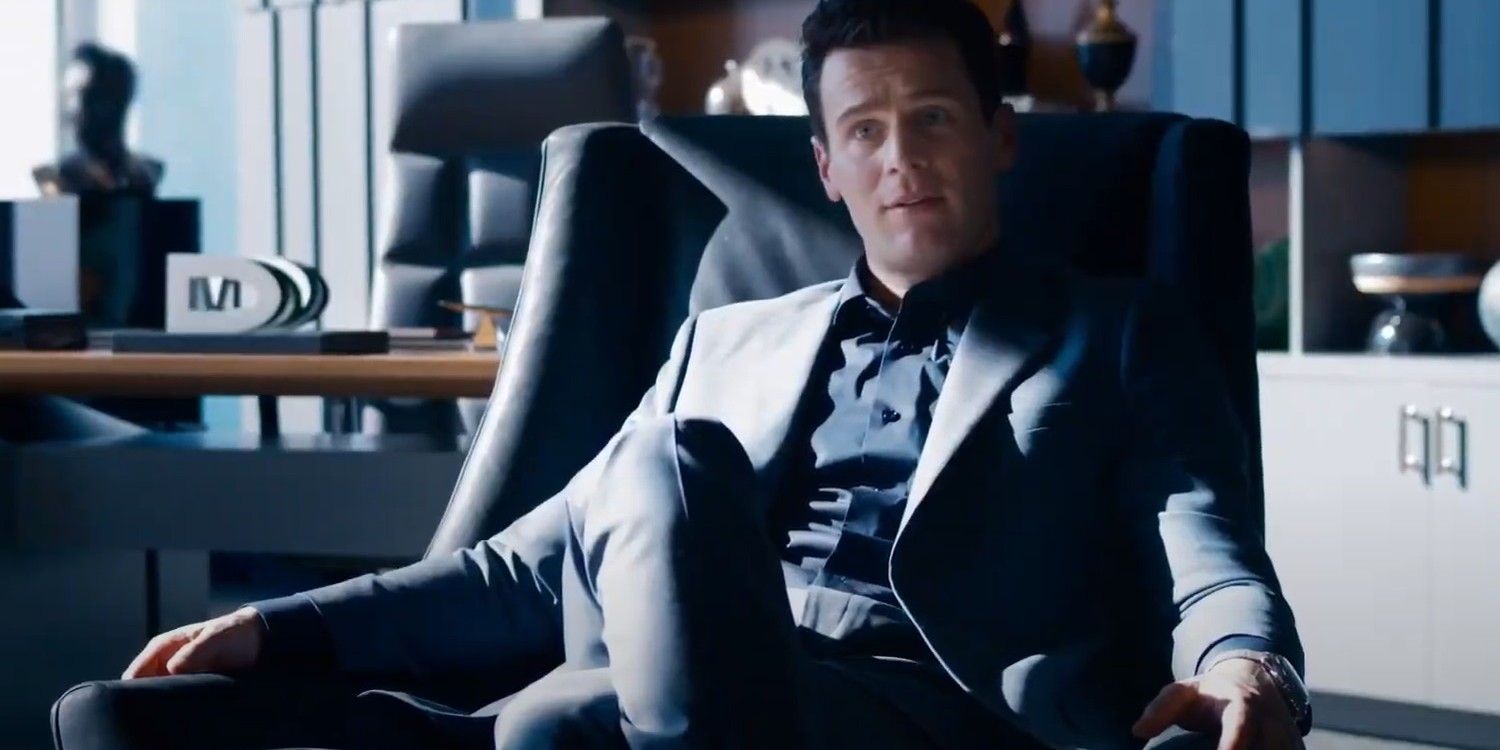
Hugo Weaving signed up for The Matrix Resurrections, but was unable to make his schedule fit after Lana Wachowski switched dates. Although Weaving sadly won't be wreaking havoc again, that doesn't necessarily mean Smith can't resurface. Seemingly destroyed during the climax of the original Matrix trilogy, Agent Smith could somehow reboot, perhaps using Windows Restore to return his operating system to an earlier point in time. Smith getting a fresh physical appearance for The Matrix Resurrections falls within the boundaries of the franchise's mythology, meaning a new actor can play the iconic baddie, come to get his revenge on human and machine alike. Again, this would explain Neo's revival. Who else could go punch-for-punch against Agent Smith?
Also worth remembering is how Smith learned to access the real world in The Matrix Revolutions, occupying the mind of a Zion human. It's not exactly clear how the villain managed this feat, but Smith's ability to transcend the digital sphere provides him with the means to escape death. Before Neo and the Machines emptied him from the Matrix's recycle bin, perhaps Smith hid inside a human mind, and laid in wait until a sequel was announced.
If Smith does return in The Matrix Resurrections, many believe Jonathan Groff could be the actor replacing Hugo Weaving in the role. The mystery character shows awareness of the Matrix being a simulation, and his exchange with Neo in the trailer mirrors the original movie's interrogation. The scene where Groff points a gun at Neo also harks back to the past, suggesting Groff is actually Smith in brand new clothes. Though fans would assume he's talking about Neo, Groff's "back to the Matrix" line may reference Smith's own return.
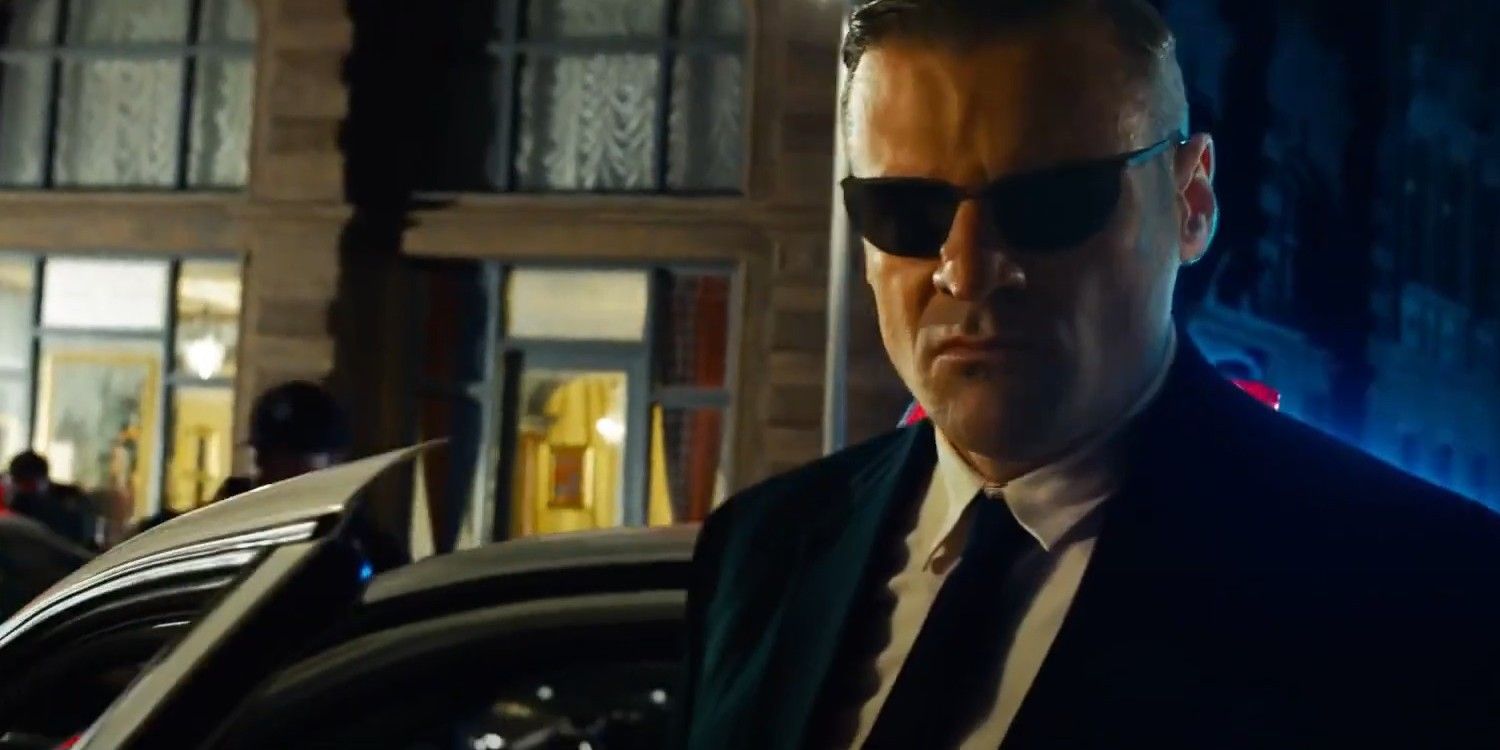
If Smith himself isn't the villain of The Matrix Resurrections, his old Agent colleagues just might be. With the confirmation of Daniel Bernhardt's return as Johnson, the Agents will clearly play some role in The Matrix 4, but what function could the suited goons serve in a world where humans are free? The Machines designed Agents to police the Matrix, ensuring plugged-in folks didn't awaken to the true nature of their reality. In the final scene of The Matrix Revolutions, The Architect promises all inhabitants will be freed from captivity, as per Neo's truce with Deus Ex Machina, but this leaves the Agents propping up the unemployment line. Adopting the hatred for humanity shown previously by Smith, the Agents could reappear as exile programs in The Matrix Resurrections, carrying an almighty grudge against the humans they used to hunt. As the Agents rage out of control, man and machine might team up against the common threat.
The Matrix Resurrections' trailer is of little help in this regard. Though we see Agents chasing down Jessica Henwick and Yahya Abdul-Mateen's characters, it's not clear whether they're simply fulfilling their original purpose, as programmed by the Machines, or whether the Agents now have their own agenda.
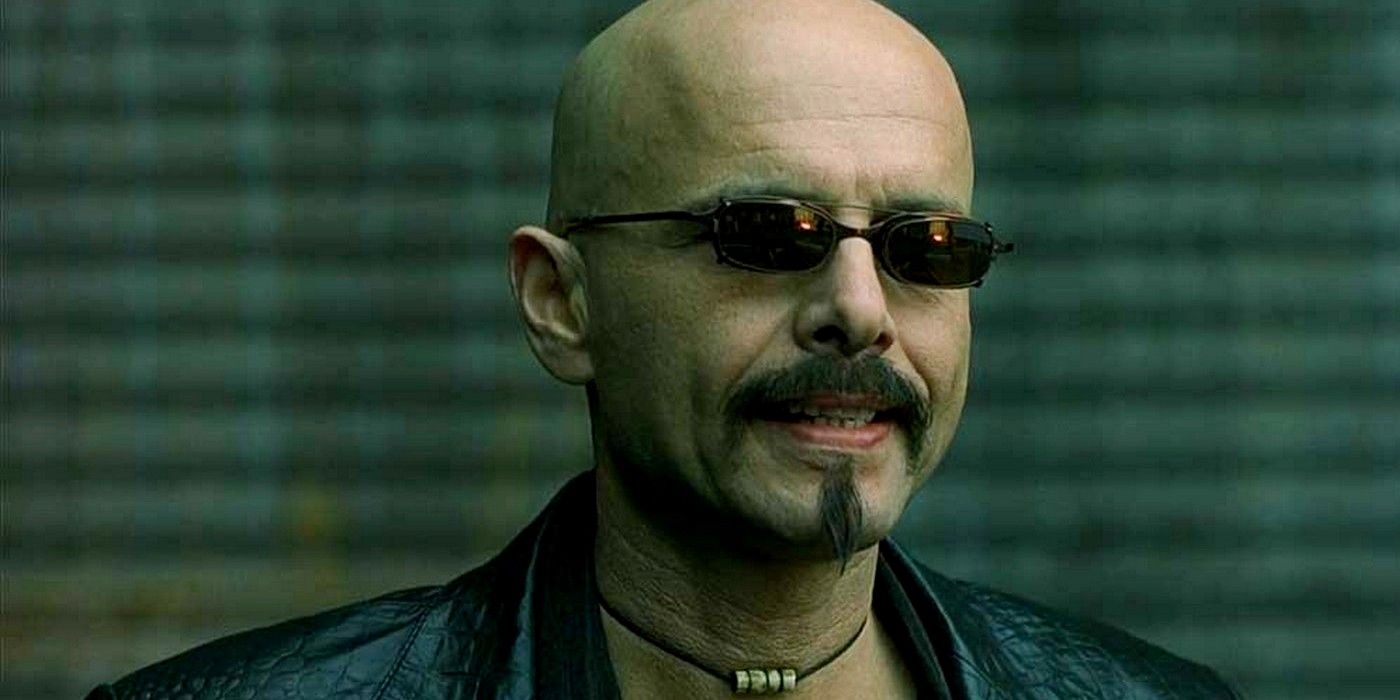
One of the most popular Matrix Resurrections theories claims the new villains will be flesh and blood, rather than nuts and bolts. The Matrix franchise is nothing if not innovative, and to once again cast Machines or Agents as antagonists risks repeating the same old story. Instead, the new film could flip the usual good/evil dynamic and turn humans into the bad guys - a plot twist The Matrix laid foundations for back in 1999. Cypher was revealed as a traitor in the first movie, siding with the Agents against his fellow Zionites. He came to believe that taking the red pill and unplugging from the Matrix was a mistake, and to live ignorantly inside a simulation was better for everyone. While Cypher's Matrix betrayal is an isolated case, his beliefs could spread in The Matrix Resurrections.
Thanks to Neo's deal with the Machines, humanity would've been freed after The Matrix Revolutions. This means people with families, friends, houses, and lives were abruptly plucked from their existence and thrown into a post-war environment of poverty and hardship. That's a traumatic ordeal, and not everyone would be as happy about "waking up" as Neo and Trinity. The Matrix Resurrections may see a surge of Cypher followers who want back into the simulation, and are waging war on the Redpills who choose reality.
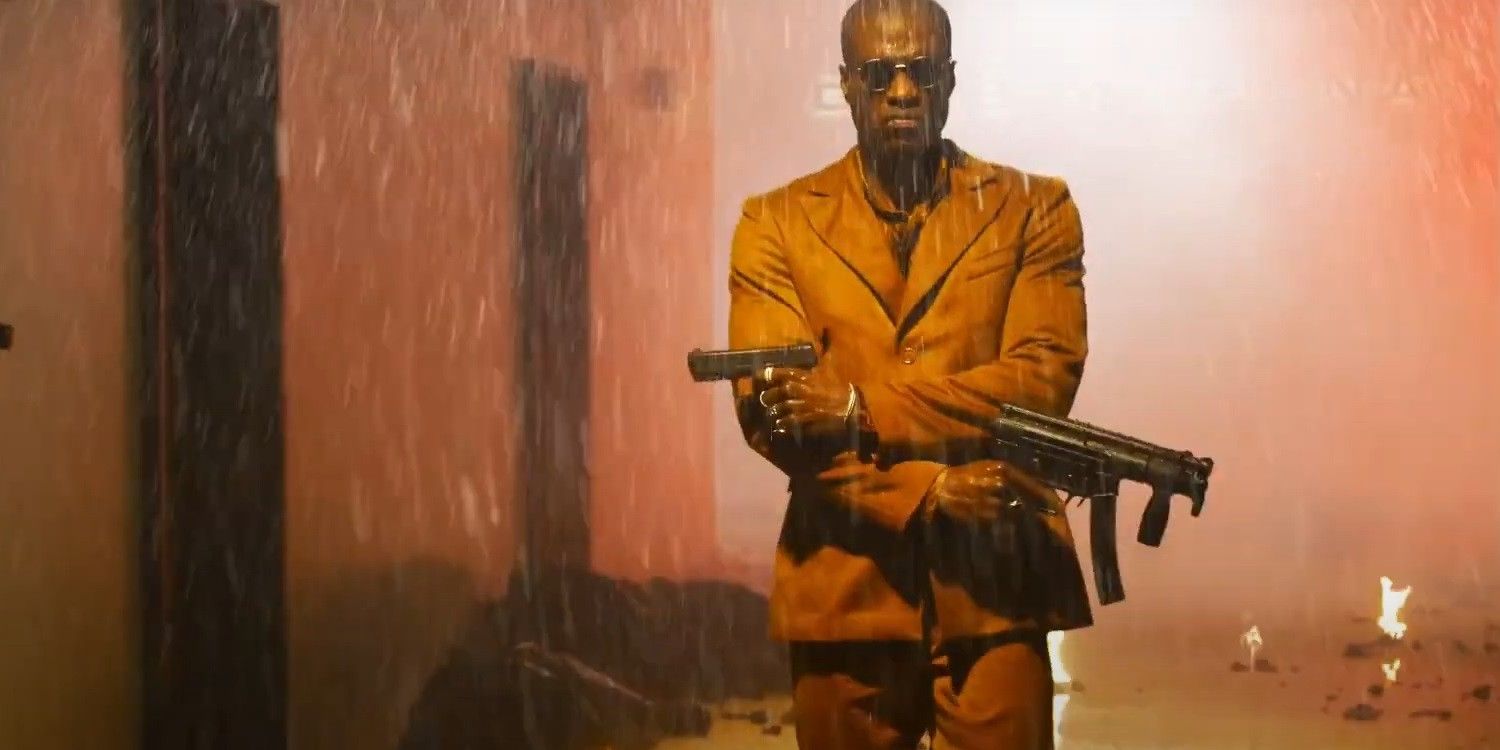
Morpheus as The Matrix Resurrections' villain may seem unthinkable to anyone who remembers Laurence Fishburne's unerringly faithful hero from the original trilogy, but the actor's absence from 2021's revival is deeply suspicious. Before The Matrix 4 was officially announced, rumors suggested Warner Bros. was planning a prequel starring a younger Morpheus, and Fishburne's omission from the new cast has only intensified speculation that the character's past is somehow pivotal to The Matrix's future. The Morpheus villain theory is largely based on his etymological connotations with real-life mythology. The name "Morpheus" is inspired by the Greek god of dreams, while his ship, the Nebuchadnezzar, references a king who conquered Zion. These hidden meanings frame Morpheus more as an enemy than a protagonist, leading some to believe he's been masterminding Zion's misery all along.
In The Matrix Resurrections' trailer, it seems that Morpheus is fighting alongside Neo and the other heroes, helping Keanu Reeves see the light. Indeed, many Morpheus shots mirror moments from Laurence Fishburne's 1999 performance. Nevertheless, trailer footage doesn't offer enough about Morpheus' intentions to definitively rule out the character being a villain.
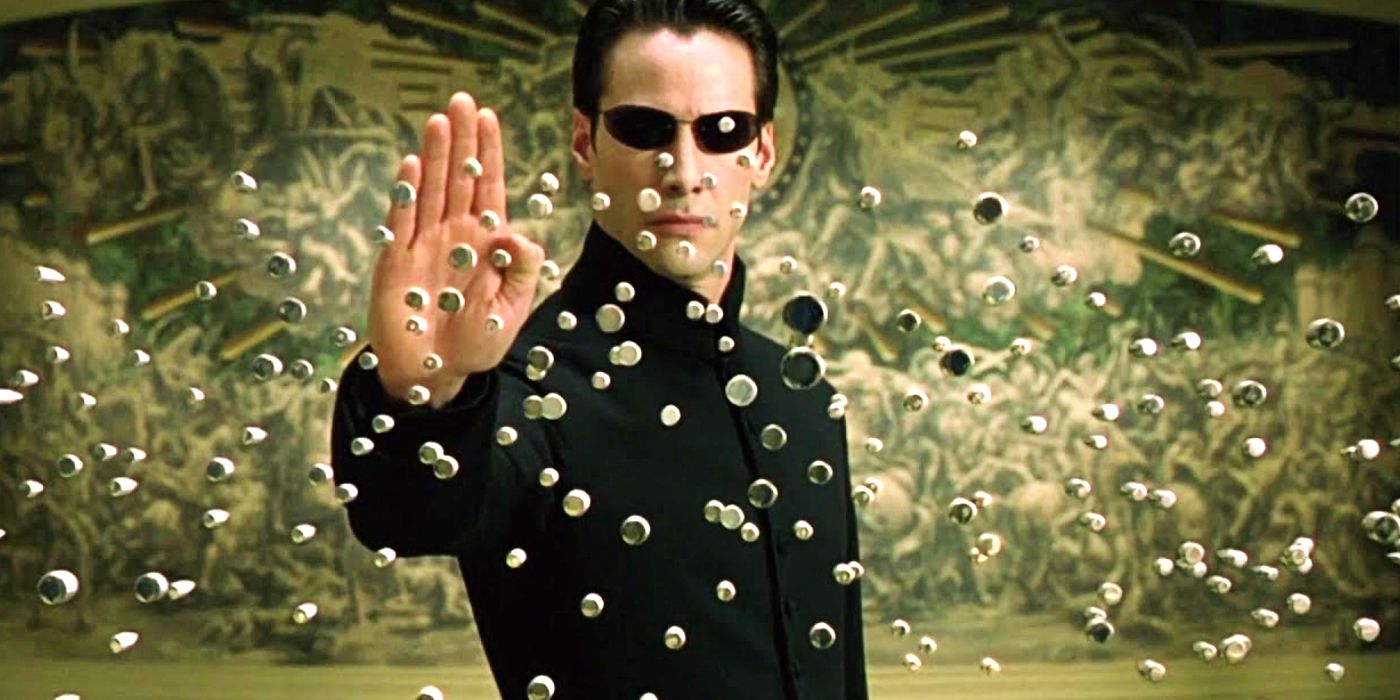
Even more inconceivable than Morpheus turning bad, could Neo be corrupted in The Matrix Resurrections? For a franchise perceived as progressive and daring, it's odd that Neo and Trinity are being wheeled out again after so many years. Consequently, some believe Keanu Reeves is playing a villain in The Matrix Resurrections, and there are several ways this frightful scenario could come to pass. Since each Matrix reboot generates a new incarnation of The One (who may or may not be physically identical to their predecessors), there's a chance Keanu Reeves is occupying 2 totally separate roles - the "Thomas" we see in the trailer, and the next One, who's noticeably less friendly.
Even if they didn't look like Keanu Reeves, there's still mileage in the new One being a villain. Without the guidance of a mentor like Morpheus, or the sense of purpose provided by Zion's war, The One might've easily turned rotten. It makes sense that Neo would be summoned to solve that crisis, since no one else can match The One's power.
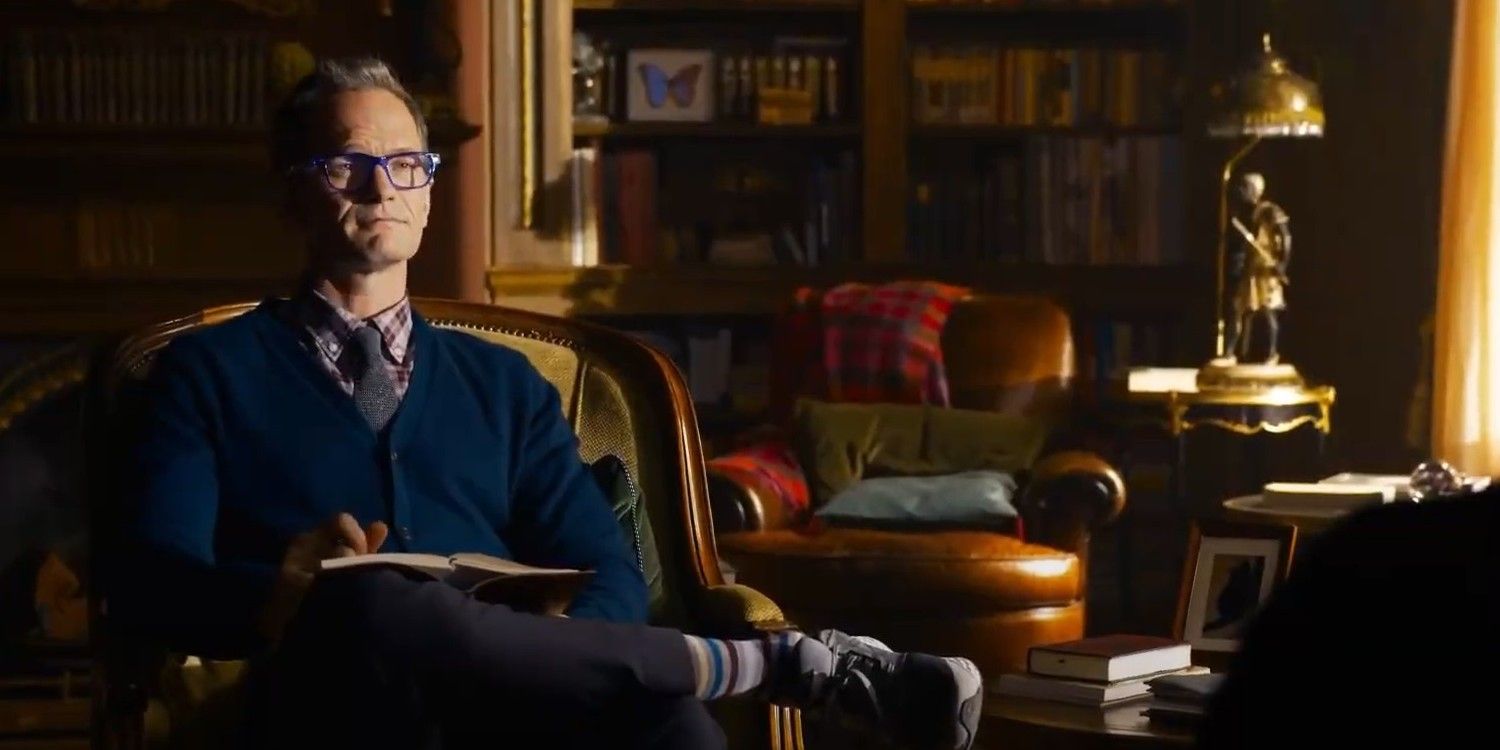
In The Matrix Resurrections' trailer, Neil Patrick Harris' character is giving Keanu Reeves' "Thomas" a therapy session. Thomas has a sneaky suspicion that his reality is a lie, but the therapist is trying to subdue those insecurities with blue pills and poor counseling. Immediately, this highlights the therapist as a potential villain. On one hand, he might be nothing more than a non-sentient program designed to keep Neo under an illusion, his One powers contained. But Harris could also be a sentient program like Smith, or a plugged-in blue pill human, wishing for humanity to remain enslaved by the dastardly Machines at all costs. Clues in the therapist's office (a black cat, a book on denial, blue pills) all suggest that he knows the truth, and intentionally leading Neo down the wrong rabbit hole hints at a darker motive.
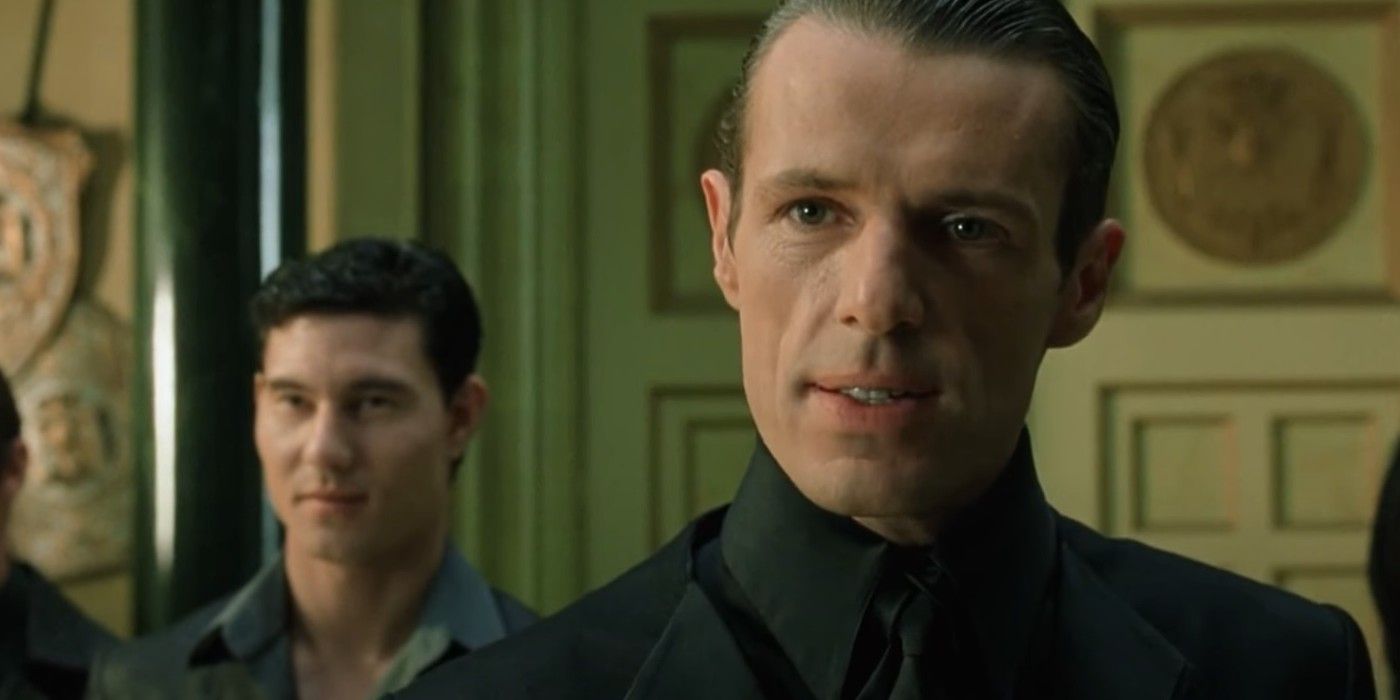
Given that Lambert Wilson's Merovingian was merely a supporting villain throughout the Matrix sequels, it'd be unusual for him to claim main antagonist status in the new film. Nevertheless, the underground troublemaker could be vastly more powerful in the modern-day Matrix. As the leader of all exiled programs, The Merovingian was forced to operate in secret, hiding from Machine and Zionite alike. But with humans shown the exit door and Agents no longer required, The Merovingian may be afforded free reign over a new Matrix, expanding his influence across the entire digital plane, and summoning all leftover programs to form one huge criminal empire in The Matrix Resurrections.
from ScreenRant - Feed https://ift.tt/3wRZRDt


0 Comments